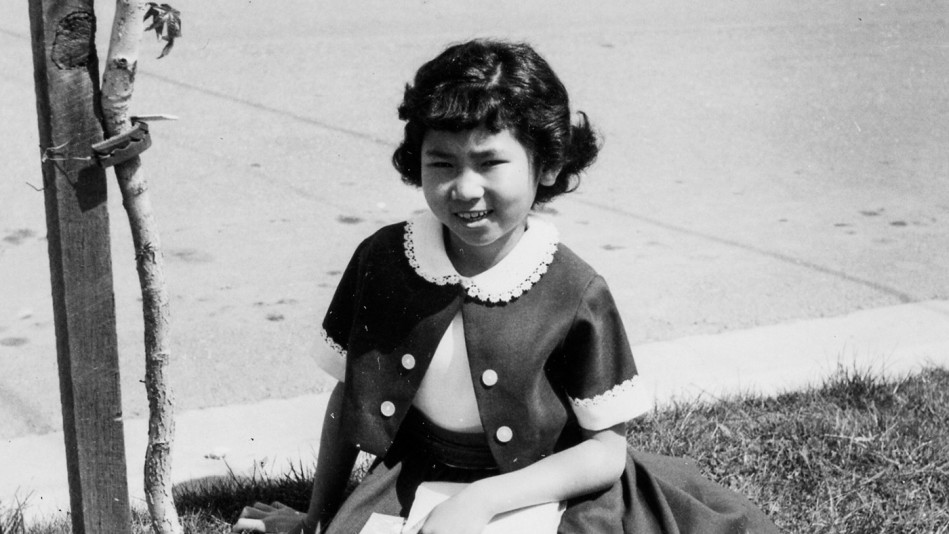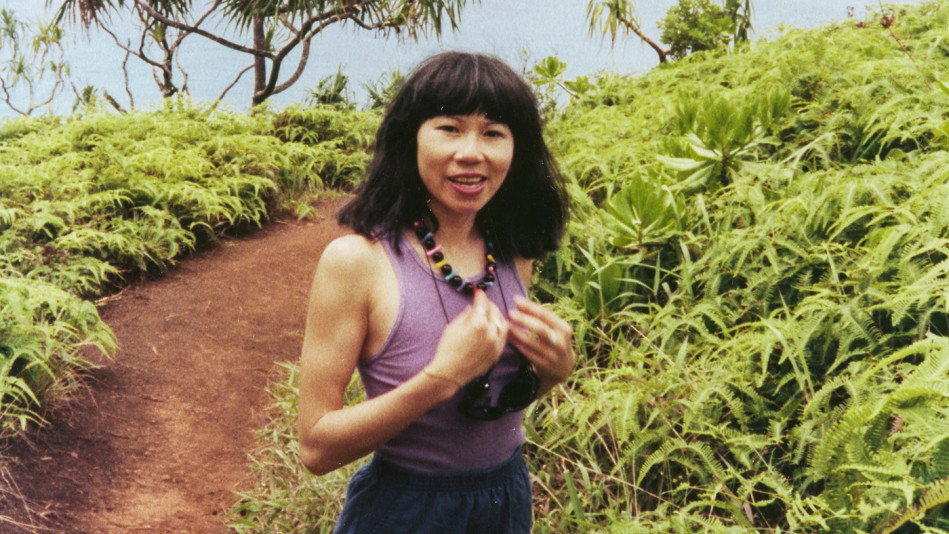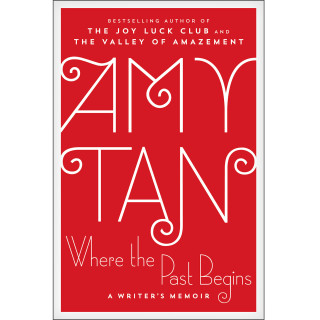Amy Tan on Learning How to Become the Narrator of Her Own Life
Amy Tan struggled for years to be seen and heard. In writing fiction, she found the support she'd always yearned for.

Photo: John Tan Sr.
Amy Tan in Hayward, California; Easter Sunday 1959.
At the age of 8, I learned I had a knack for writing, one with material benefits. I had written an essay on the assigned topic "What the Library Means to Me" and won in the elementary school division. The prize was an ivory-and-gold-tone transistor radio. There was a reason I won. I wrote what I knew the judges wanted to hear: that I was a kid who loved to read, that I was so passionate about the library I'd donated my life savings (18 cents) to the building of a new one. I intentionally mentioned my age and the amount of my estate. I already had very good intuition about what pleased people—I knew how to be calculating.
Yet there was something in that essay that I later recognized as an early glimmer of my imagination and my disposition as a writer. The clue lay in sentences from the middle of the piece: "These books seem to open many windows in my little room. I can see many wonderful things outside." That was the sign: Rooms and windows were metaphors for freedom and creativity, one being the condition for the other.
There was also the fact that I liked to be alone in my tiny nook. Throughout childhood, my small bedroom—or rather, the small bedrooms of many successive houses from my birth to age 17—became the escape hatch from my parents' criticism, where I was safe from scrutiny. In it, I inhabited a time machine propelled by the force of a story, where I could be gone for hours on adventures with newly gained skills—breathing underwater with a goddess, answering riddles posed by sages disguised as bearded beggars, riding bareback on a pony across the plains, or enduring cold and starvation in an orphanage. Gruel was delicious, like Chinese rice porridge. I found companionship in Jane Eyre, a girl who was independent-minded and brave enough to tell her hypocritical aunt that she was unkind and would go to hell. Jane taught me that loneliness had more to do with being misunderstood than being alone.
I returned to those little rooms many times to find a companion akin to Jane, someone who felt as I did and wanted what I wanted. In essence, I needed a metaphoric companion who was an antidote to the conscience that pinched me with guilt and reminded me to do what others said I should do. My companion would feel the same anger at being unfairly accused, the same humiliation of failing in front of others, the same fear that I was not as smart as people thought. She would have consoled me: "Of course you feel this way."
In my teens, I thought of that companion as my spiritual twin, who I might have been had I not been contaminated by my parents' demands to become a brain surgeon, a concert pianist, a girl who was thoughtful, unselfish—in other words, perfect. My spiritual twin knew that my withdrawal from my family was actually grief—my 16-year-old brother and my father had died of the same illness in the same year, abandoning me. Hope was stupid. It would always betray me. There were no truly good people, no good endings. Morality was a facade. My companion was now a rebel in a banned book, and together we got brazen, rejected religion and expectations, took up with the wrong people, and nearly destroyed our lives in doing so.
 Photo: Courtesy of Amy Tan. Amy Tan in in Hawaii 1985.
Photo: Courtesy of Amy Tan. Amy Tan in in Hawaii 1985.
By the time I was a young woman, the companion I needed understood why I thought it was crucial to experience turmoil and suffer for love. I was scared that I couldn't feel deeply anymore, and that the condition was permanent. I had lost trust in everything after miracles hadn't saved my brother and father, after being pummeled by my mother's countless suicide threats. My companion in the room told me that by worrying about this I was indeed feeling deeply.
At 33, I despaired that my work as a freelance business writer had become meaningless. Each moment was no more lasting or nourishing than a sandwich. The more money and praise I received, the more panicked I felt. I had not chosen my life. I had taken a path others had pointed out, and it had become a rut that led to a trap. I had no way to return because I was lost.
Therapy didn't work, so I quit, and began to read stories again—voraciously. I went on holiday to Hawaii, and there, in a hammock, I devoured Love Medicine by Louise Erdrich. I was astonished to find many companions who had endured crazy relatives, and more tragedy and betrayal than love, yet were able to find themselves. I realized then that I had to write my stories with characters who knew the history of me. Together we took the metaphors and the mess of my life and lived them differently in fiction. I didn't have to start over. I could turn. I could accommodate pain. As long as I kept searching and asking, I would never lose myself. I was the narrator of my life. I could go into my writing room without loneliness but with purpose: to find meaning in both the past and the moments unfolding. To recognize old patterns and make new discoveries, all of them deeply felt. As I continue to write, I don't know what will happen, and yet I do.
 Adapted from Where the Past Begins Ⓒ 2017 by Amy Tan, published by Ecco. Used with permission of the author.
Adapted from Where the Past Begins Ⓒ 2017 by Amy Tan, published by Ecco. Used with permission of the author.



